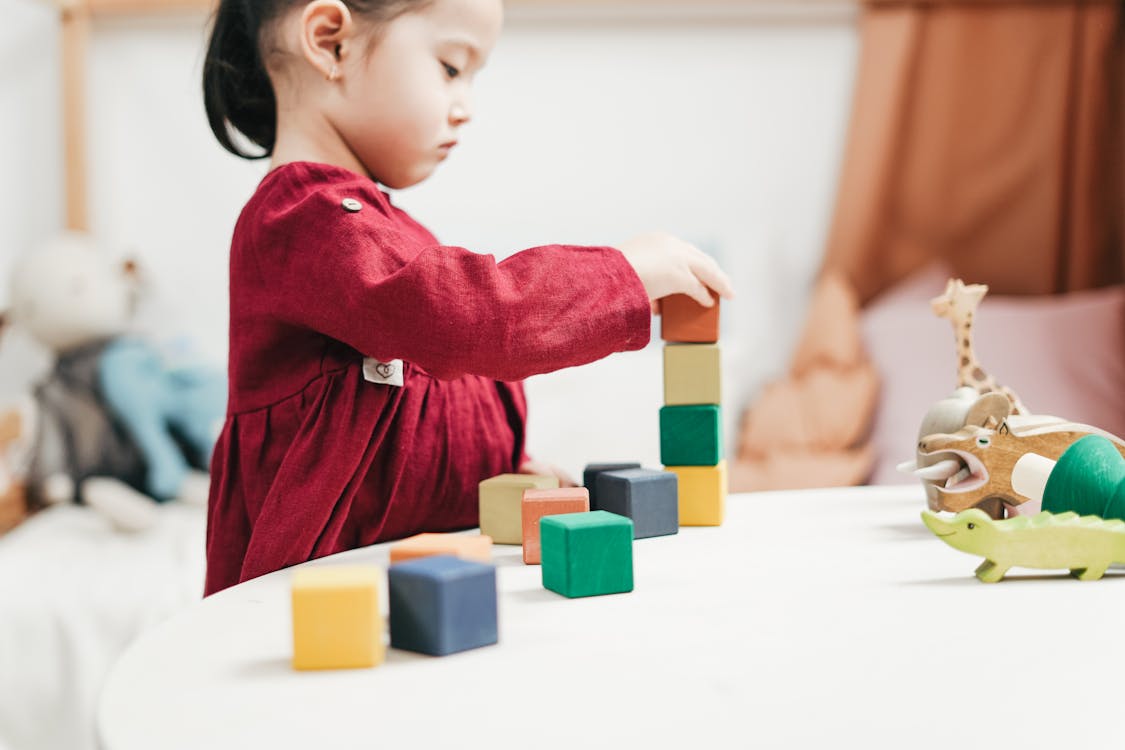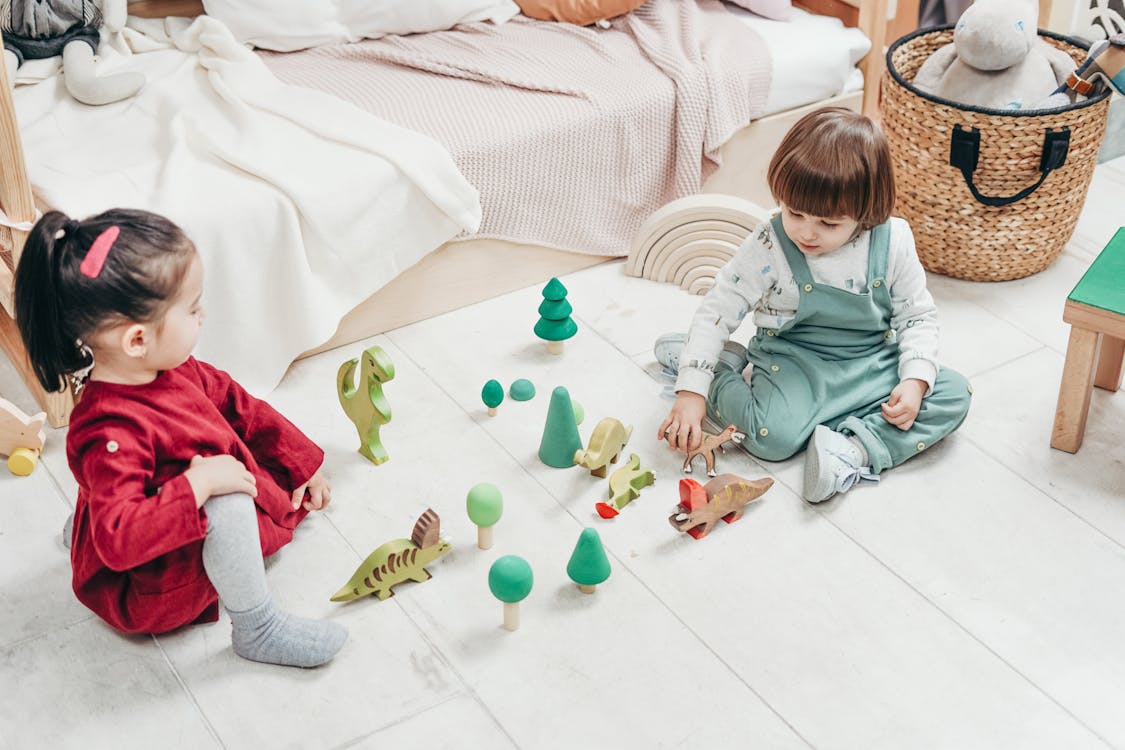What indoor games can children play at home?

1. Board Games:
- Games like Monopoly, Scrabble, and Candy Land are not just fun, they also help your brain grow smarter. Monopoly lets you buy and sell properties, teaching you about money.
- Scrabble makes you think of words and helps you become better at spelling.
- Candy Land is a simple game for younger kids that teaches them about making choices. So, next time you play these games, know that you’re not just having fun, you’re also getting smarter!
2. Card Games:
- Easy card games, like Go Fish, Uno, or Memory, are lots of fun for little kids. They help you remember things, match stuff, and take turns. When you play these games, you also get better at counting and learn to follow rules, which is pretty cool.
- Now, for the older kids, there are card games like Poker or Rummy. These games are a bit trickier and need more thinking.
- Poker is about bluffing and figuring out what others are doing, while Rummy is about making sets and runs. Playing these games makes your brain work, and you get better at making smart decisions.
3. Puzzle Time:
- Jigsaw puzzles are like fun brain games. They come in easy and hard levels, so you choose the one you like. Doing a puzzle is like a little adventure – you find where each piece fits and make a cool picture.
- Puzzles teach you to be patient. It might take time to find the right piece, but that’s okay. It’s like a fun challenge, and when you put all the pieces together, it feels great!
- Puzzles are like brain exercises.
4. Indoor Obstacle Course:
- Creating a little obstacle course at home is super fun! It turns your living space into a cool adventure zone for kids.
- They can crawl under tables, jump over cushions, and balance on imaginary beams while having fun.
- Crawling under tables helps them improve their movement and balance. Jumping over cushions makes them more agile, and balancing on pretend beams lets their imagination run wild.
5. Indoor Bowling:
- Creating a homemade bowling game with plastic bottles and a soft ball is a really fun way for kids to play and learn. It’s like making your own bowling alley at home!
- First, you set up the “pins” by arranging the plastic bottles. This helps kids learn how to plan and organize things. They can decide where to put the pins to make it a little challenging.
- When the “alley” is ready, the actual bowling part is great for helping kids move and use their muscles. They aim, throw, and try to knock down the pins. It’s like doing exercise while having fun!
Benefit for Child Development

1. Physical Activity:
- Even though indoor games might not make you run around as much as playing outside, they still help you move and keep your body active. This movement is important for making sure you stay healthy and strong.
- Indoor games include different activities where you might stretch, reach, or use your hands and eyes together.
- Even simple things like playing with puzzles or board games can help your muscles and coordination. It might not be as tiring as playing outside, but it’s a good way to practice different movements in a safe and controlled space.
2. Safety:
- Playing games indoors means kids can have fun in a safe place, reducing the chance of accidents compared to playing outside.
- Parents or caregivers don’t need to worry about their children’s safety, making it a stress-free environment for everyone.
- When kids play indoors, they are protected from things like uneven ground, unpredictable weather, or busy streets. This safe space lets them explore, learn, and enjoy themselves without the risks that come with playing outside.
3. Rules and Discipline:
- Playing indoor games comes with some rules that kids need to follow. Learning and sticking to these rules teach them about being disciplined and organized. It sets the stage for approaching tasks and activities in an orderly way.
- When kids play indoor games, they not only have fun but also learn about the rules of the game.
- Following these rules ensures that everyone has a fair and enjoyable time. It also helps kids understand that their actions can affect how the game goes.
4. Problem-Solving Skills:
- Playing indoor games often means facing challenges that make kids think and solve problems. Figuring out the best moves or strategies during the game helps improve a child’s ability to think critically and solve problems.
- When kids play indoor games, they come across situations that need them to analyze, plan, and make decisions.
- Whether it’s solving a puzzle, deciding the next move in a board game, or planning in a video game, each challenge lets them use their brain.
5. Communication Skills:
- Playing indoor games is a great way for kids to learn how to talk and work with others. When they play these games, they get better at expressing their thoughts and listening to what others say. It’s like practicing how to talk and listen in a fun way.
- In indoor games, kids have to figure out how to work together to win or achieve a goal. This helps them understand the importance of teamwork.
- They see that when everyone in the team does their part, things work out better.
Read also:
11 Best Ways to Improve Your Digestion
6. Social Interaction:
- Indoor games are a way for kids to be social. Whether playing with brothers, sisters, friends, or family, children get to learn about sharing, working together, and having good conversations.
- This helps them make friends and have good relationships with others.
- When kids play indoor games with others, they learn to share. They understand that everyone can have a turn, and everyone can enjoy the game. This sharing helps them get along with others not just during games but also in other situations.
7. Cognitive Development:
- Indoor games are like brain exercises that make kids smarter. They help children remember things, concentrate better, and think strategically. Some games even make their minds work harder, building important skills that help them do well in school.
- When kids play indoor games, they use their memory to remember rules, moves, and patterns. This helps improve their ability to recall information, which is important for learning and school.
- Concentration is another key skill that indoor games enhance. Kids need to focus on the game, pay attention to details, and make decisions. This practice in concentration is valuable for staying focused during schoolwork and other tasks.
8. Emotional Well-Being:
- Playing indoor games is not just fun; it’s also great for a child’s feelings. It’s like a way to let go of stress, make them feel happier, and give them a sense of achievement, all leading to a positive emotional state.
- When kids play indoor games, it’s a way for them to forget about worries and relax. It’s like a break for their minds, helping them feel better emotionally.
- The joy and laughter that come with indoor games can make a child’s mood better. Playing with friends or family, sharing laughs, and enjoying the game all contribute to making them feel happier. It’s a simple way to bring joy into their day.
9. Versatility and Adaptability:
- Indoor games come in lots of different types, so there’s something for everyone. This is great because it means parents and caregivers can choose games that are right for their child’s age and what they like.
- It’s like having a bunch of choices in a toolbox – different games for different ages and interests.
- This variety is like having a menu of options. Families can try out different games, like board games or puzzles, that are not just fun but also fit a child’s growth and learning. It’s about finding the right balance of fun and learning for each stage of childhood.
10. Family Bonding:
- Playing indoor games together is not just about having fun; it’s a chance for families to come closer and strengthen their bond. It’s like creating special moments that build a warm and caring family feeling.
- These shared experiences become memories that everyone can remember happily. The laughter, friendly competition, and excitement during indoor games create a connection that goes beyond just playing.
- It’s about building a strong bond that lasts.




